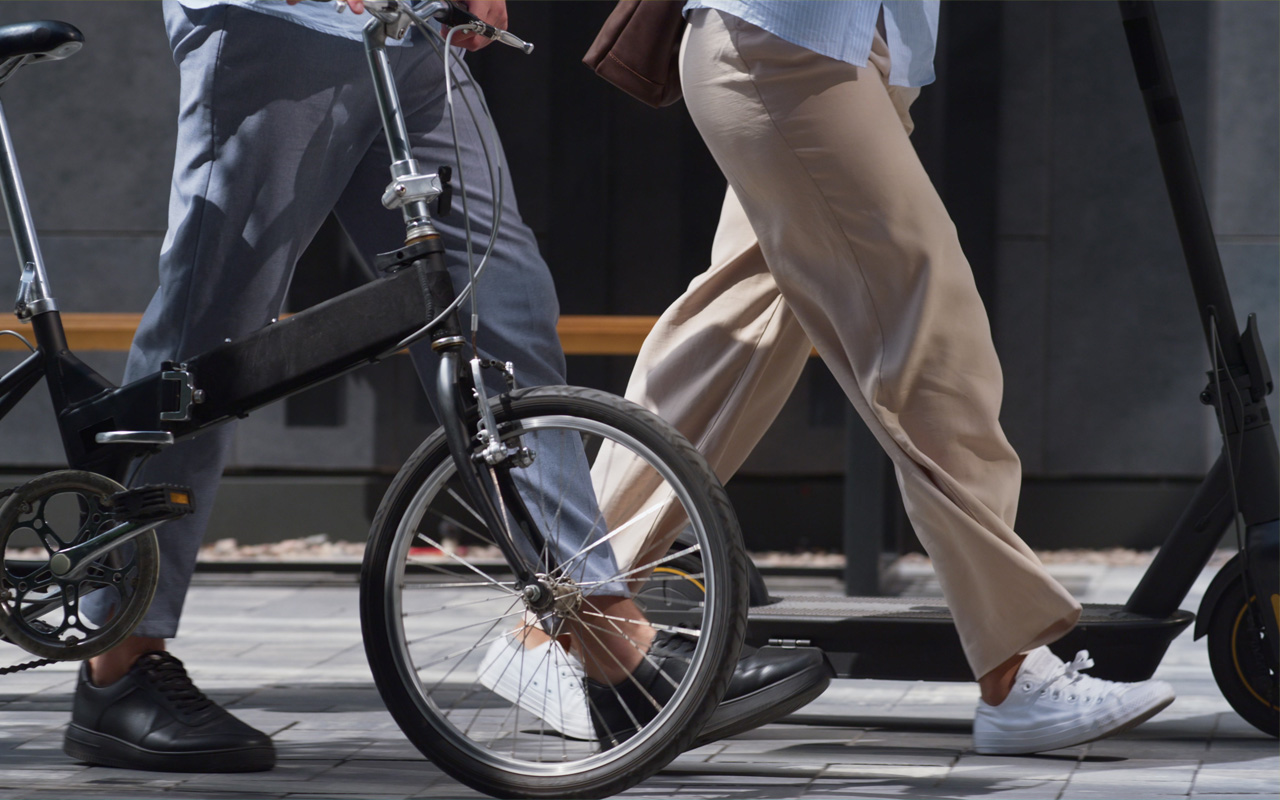12.11.2024
Environmental care or savings? Survey on green choices of Poles

Almost 60% of the surveyed Poles have changed their daily habits in the last two years for the sake of nature, according to the survey "Ecological attitudes of Poles" for Bank Millennium. Poles segregate waste, save electricity, water and reduce shopping, but without much conviction that these activities actually improve the condition of the natural environment.
In the survey "Ecological attitudes of Poles", Bank Millennium asked respondents about their habits and opinions on ecology present in various spheres of everyday life.
It turns out that as many as 45% of respondents assess the knowledge of the Polish society about climate change and the impact of the economy on the environment as low. For comparison, only 18% of respondents rate the environmental awareness of Poles highly. And how do we see ourselves against the background of the continent? Over 40% of respondents believe that the ecological situation in Poland and the rest of Europe is similar. Over 30% believe that the situation in Poland is worse than in Europe, and over 20 % - that it is better.
Poles at the declarative level attach quite a lot of importance to issues related to environmental protection. Every second respondent claims that they pay attention to the pro-ecological activities of companies and institutions, are ready to pay more for environmentally friendly products, and read reports and news on ecology. Almost 60% of the respondents admitted that they had changed their habits in the last 2 years due to aspects related to the natural environment.
Respondents declare a number of regular pro-ecological activities, but at the same time they are not convinced that they have a large impact on improving the natural environment. The exception is waste segregation, which is declared by 76% of respondents on a daily basis, and more than half of them consider it important in environmental protection. In the case of other pro-ecological activities, the discrepancy is already significant. For example, 70% of respondents turn off unnecessary lighting, but only 21% consider it important from the point of view of the environment. 64% of respondents choose energy-saving light bulbs and household appliances for their homes, 63% of respondents save running water, 54% of respondents buy smaller amounts of food products and reduce food waste, while the belief that these activities improve the environment is shared by only 24%, 32% and 18% of respondents, respectively.
All of these most popular routines are linked to saving money. The surveyed Poles are less likely to declare taking pro-ecological actions resulting directly from their beliefs or involving higher costs. For example, only 26% of respondents decide to buy environmentally friendly products with certificates confirming sustainable production or cultivation. To a lesser extent, the respondents pay attention to whether the manufacturer/service provider generates a negative impact on the environment (19% of respondents answered so), less than one in five Poles invests in renewable energy sources (e.g. photovoltaics or heat pumps), and only one in ten pays attention to whether they travel to countries with the problem of waste and low standards of environmental care.
The survey also draws an interesting conclusion that Poles over 65 are the most eco-friendly. They segregate waste more often than other age groups (86% of respondents in the 65+ age group do so), use energy-saving light bulbs and household appliances (78%), turn off unnecessary lighting (76%), save water (70%), buy smaller amounts of food and avoid throwing away food (65%), plan shopping and buy only essential products (64%). They are more likely than other age groups to give away or sell unnecessary things (60%), as well as use public transport, bicycles or walk (49%). The only exception among them is the low popularity of buying second-hand items (36%), which is admitted by every second (52%) representative of the youngest age group up to 24 years old.
— — Such attitudes in the oldest age group of respondents may of course result from increasing environmental awareness, but it is more likely that they are associated with stronger saving habits. Based on our other research and data, we know that older people are more sensitive to expenses — explained Agnieszka Wolf-Wacławska, CX Research and Design Expert at the Quality Department.
Respondents were also asked in the survey what – in their opinion – stops Poles from greener shopping. They answer this question directly - the price. This is indicated by 70% of respondents. On the other hand, when it comes to traveling, 60% of respondents believe that Poles more often choose less environmentally friendly means of transport for reasons of convenience and self-interest. As another barrier preventing an ecological style of transport, they indicated high ticket prices (47% of responses).
Almost 80% of the respondents believe that the state of the environment is a significant problem today. In their opinion, the greatest negative impact on the natural environment is exerted by corporations and large enterprises (42% of responses), followed by other countries or larger economies (15% of responses), Polish residents (11% of responses), the Polish government (9% of responses), scientists or research organisations (6% of responses) and Polish local governments (5% of responses). On the other hand, when asked about who should act to improve the ecological situation in Poland, they do not point to large companies at all, but they point to everyone in solidarity.
The "Ecological attitudes of Poles" survey was carried out in August 2024 by the SW Research research agency for Bank Millennium on a representative sample of 1000 people using the CAWI method.
More information: www.bankmillennium.pl.